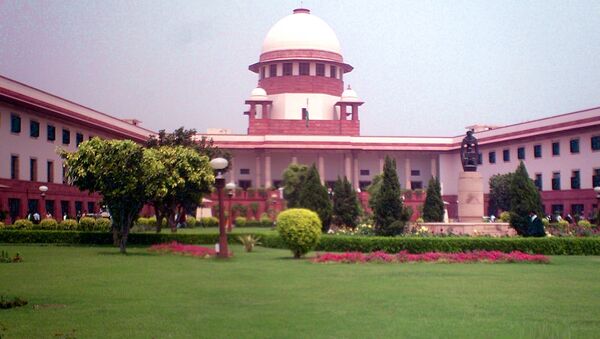The Supreme Court of India has been deliberating on using a dedicated satellite to facilitate smooth internet access via optical fibre networks in a bid to introduce virtual court sessions throughout the country.
A bench presided by Chief Justice S.A. Bobde revealed that discussions of the idea are underway, saying that the Supreme Court is “thinking of asking the government to give us a satellite for better network and connectivity of virtual courts.”
India's Attorney General K.K. Venugopal has also urged the Supreme Court to think about live streaming its proceedings, for the same reasons cited by the Gujarat High Court, reiterating that those proceedings would be available for people across the country to witness.
While the Chief Justice Bobde and Attorney General Venugopal are batting for fibre optic-powered online court sessions, India’s Solicitor General Tushar Mehta pointed out that the step could cause a commotion and chaos for the courts, while hindering its operation.
According to Mehta, live-streaming court sessions could lead people to file futile petitions just for the sake of giving themselves a nationwide platform for promoting political opinions – which in turn will also end up overburdening the courts with distracting and random hearings.
As of now, Chief Justice Bobde and his bench have said that a decision on the matter will be taken at the earliest time.
Mukesh Ambani’s telecom network Jio has been nominated as a top contender for providing the “best” fibre optic network by senior advocate Harish Salve. A written proposal from Jio has been requested by the court at Salve’s suggestion.
Against the backdrop of the pandemic, the Supreme Court of India had directed the hearing of “urgent matters” through video conferencing from 26 March.
The Vidhi Centre for Legal Policy, an independent legal think-tank in India has also backed the idea of normalising virtual open court rooms, saying that the live audio-video streaming of proceedings has the potential to contribute tremendously to legal education as well as in ensuring the accountability of both the bar and the bench.
The think tank's arguments are based on the premise of several law students urging the government to allow online law classes in India, especially at a time when COVID-19 restrictions are obstructing their practical court room sessions.
When are the Courts going to open in Punjab? Court cases are at standstill for 8 months and they were not moving fast pre #COVID19 Why are there no virtual/telephone hearings? @rsprasad @DoJ_India @OfficeOfRSP @BJP4India @BJP4Punjab @narendramodi @PMOIndia
— Anonymous Punjab (@CorruptPunjab) October 23, 2020
Only courts in India r still closed even after the pandemic,Only virtual hearings going on. I m 3rd yr student of fculty of law, DU. Now i found excruciatingly hard 2 join any law office 4 my internship. Sometimes I thought why i choose this profession #openthecourts
— SACHIN TANWAR (@SACHINT63916637) October 23, 2020
@OfficeOfRSP @barcouncilindia @ugc_india
— Dr. Parvathi Satyanarayana (@PRTUTG) October 24, 2020
All academic courses are provided through #virtual/#distancemode in India except law courses (#LLB/#LLM) These certificates are recognized all over the world. It would be very useful and is essential to provide law courses through
1/1



